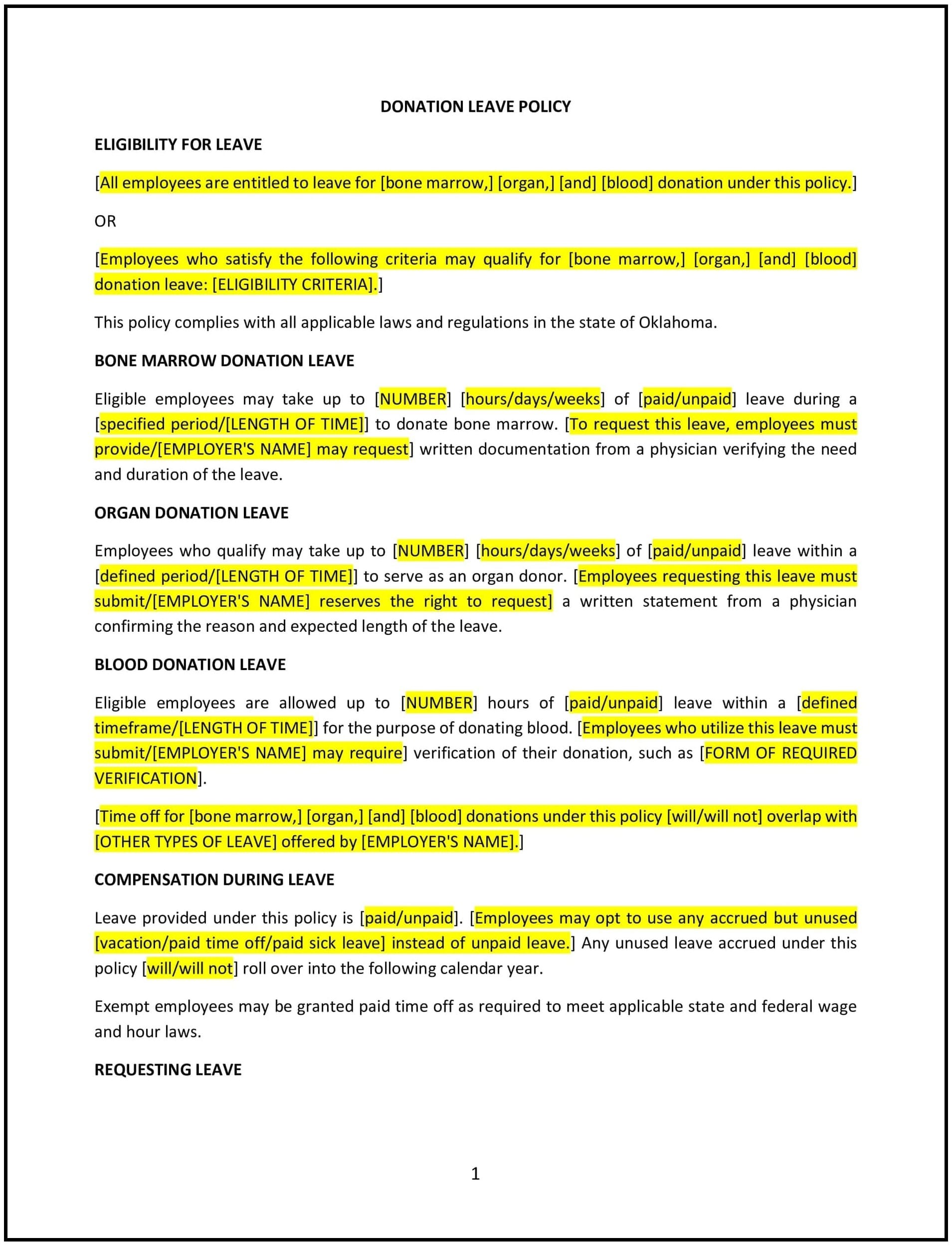Got contracts to review? While you're here for policies, let Cobrief make contract review effortless—start your free review now.

Customize this template for free
Donation leave policy (Oklahoma)
This donation leave policy is designed to help Oklahoma businesses establish guidelines for employees requesting time off to donate blood, organs, or bone marrow. The policy outlines eligibility, request procedures, and leave duration to ensure a structured and supportive process.
By implementing this policy, businesses can promote employee health, community service, and workplace flexibility.
How to use this donation leave policy (Oklahoma)
- Define eligibility: Specify which employees qualify for donation leave based on tenure, employment status, or medical documentation.
- Establish request procedures: Require employees to submit leave requests in advance, including supporting medical documents if necessary.
- Set leave duration limits: Define the amount of paid or unpaid time off employees may take for different types of donations (e.g., blood, organ, or bone marrow).
- Address job protection: Clarify whether employees will retain their roles and benefits during donation leave.
- Outline return-to-work procedures: Ensure employees are medically cleared before resuming regular job duties.
- Provide additional support: Offer resources or accommodations for employees recovering from donation procedures.
- Review regularly: Assess the policy periodically to align with best practices and Oklahoma-specific workplace regulations.
Benefits of using this donation leave policy (Oklahoma)
Implementing this policy provides several advantages for Oklahoma businesses:
- Encourages community service: Supports employees who wish to donate life-saving blood, bone marrow, or organs.
- Enhances workplace flexibility: Provides employees with structured leave options without disrupting business operations.
- Promotes employee well-being: Demonstrates a commitment to employee health and personal causes.
- Reduces administrative uncertainty: Standardizes leave procedures to streamline HR processes.
- Reflects Oklahoma-specific workforce considerations: Aligns with state workplace norms and medical leave best practices.
Tips for using this donation leave policy (Oklahoma)
- Communicate options clearly: Ensure employees understand the process and criteria for requesting donation leave.
- Maintain confidentiality: Protect employee medical information related to donation procedures.
- Provide flexible scheduling: Allow employees to coordinate donation leave with business needs when possible.
- Monitor recovery: Ensure employees are fit to return to work after donation procedures.
- Adjust as needed: Update leave policies based on employee feedback and evolving workplace practices.